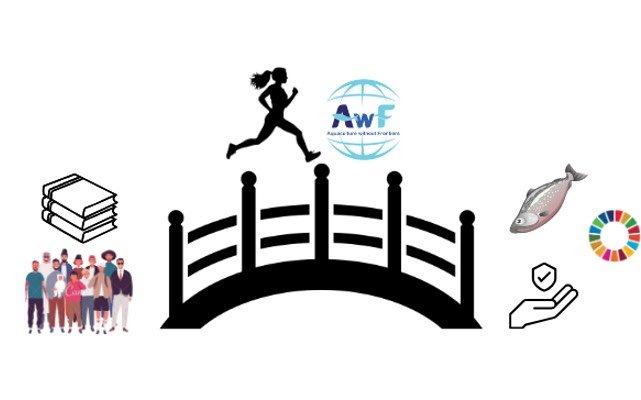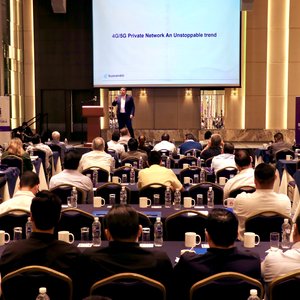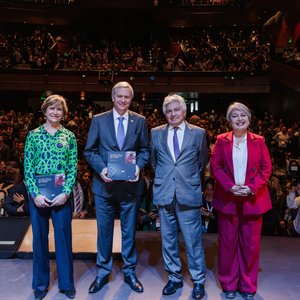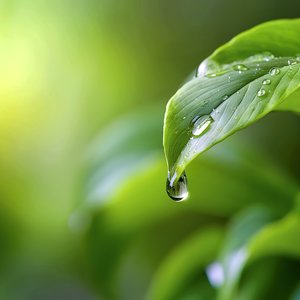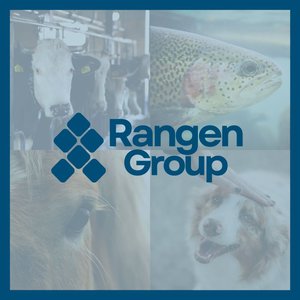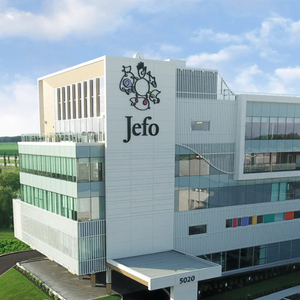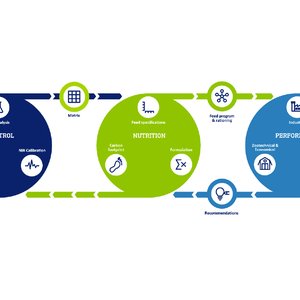Ava Drake is pursuing a PhD in aquaculture at Stirling University, Scotland, and approached Aquaculture without Frontiers (AwF) about creating a donation platform for the two-hundred-mile run that she has chosen to enter across Tajikistan in May 2026.
Ava, who comes from a small town in Essex, UK, and has always been drawn to nature, farming and people, has seen her engage in travel from Madagascar to Mongolia before starting her degrees in Zoology and then One Health. This travel left a profound mark on her as it helped her see how food, health and equity are strongly interlinked.
In Ava’s own words, “I am not only a researcher, but an avid runner who enjoys a challenge, so when I saw this event that includes running across the Pamir Mountain range, living amongst local communities, and ultimately putting myself through a serious test of endurance and resilience, I could not resist.”
“But I did not want this to be just about personal growth. I saw an opportunity to unite three parts of my life: my world as a runner, my world as a researcher, and my vision for a fairer, more equitable world. AwF is the perfect fit for this because their values, from grassroots empowerment to gender equity in food systems, reflect how aquaculture can be used to address food insecurity. As a woman researcher in aquaculture, I am aware of the privilege I have, not only to study in this field but to do so in a space where I am respected and supported. This is not the case for many women around the world. So, if I can help amplify the incredible work AwF does, raise awareness about the importance of aquaculture, and build something meaningful beyond the race, then this campaign would have all been worthwhile. Additionally, as a PhD student, I also see this as an opportunity to turn part of my research into something more tangible, something that resonates beyond the academic bubble, and turning miles into meaning.“
Conversations have been held, and AwF are starting to plan how this "project" could be helpful to those Ava has outlined.
Tajikistan is a mountainous and landlocked country in Central Asia, which continues to grapple with significant levels of poverty despite steady progress over the past two decades. As of 2024, an estimated 23% of the population lives below the national poverty line, with rural areas disproportionately affected. About 80% of Tajikistan’s poor reside in the countryside. The country’s fragile economy depends heavily on remittances from citizens working abroad, which, while lifting many out of extreme poverty, also makes household incomes vulnerable to regional and global shocks. Many families earn less than USD 3.65 per day, and income disparities remain a persistent challenge.
Because Tajikistan is landlocked and possesses limited arable land (only about 7% of its territory is suitable for agriculture), it relies heavily on imported food, especially wheat, sugar, meat, and various staples. The bulk of food imports comes from neighboring countries, such as Kazakhstan, Russia, Uzbekistan, and China. This reliance on imports means that Tajikistan is acutely vulnerable to fluctuations in global food prices, border closures, and supply chain disruptions, as was seen during recent global crises. Food insecurity can quickly escalate when regional exporters change their policies or when transport costs spike, often leaving the poorest Tajiks especially exposed to scarcity and rising prices.
Given these challenges, aquaculture holds considerable untapped potential for improving food security and livelihoods in Tajikistan. Although endowed with extensive river systems and freshwater resources, national fish production remains extremely low. Per capita fish consumption in Tajikistan is among the lowest in the region, under one kilogram per year, compared to the global average of over twenty kilograms. Recent government initiatives, supported by international organizations like the FAO, have begun to promote modern aquaculture practices and technology transfer. If developed sustainably, aquaculture can provide a reliable and affordable local protein source, create rural jobs, and reduce dependence on food imports, helping the country to manage both poverty and food security challenges more effectively in the years to come. AwF will endeavour to be a catalyst for change in that regard because of Ava’s initiative.
Here are some last words from Ava, “I am looking forward to the journey and to seeing what opportunities might grow from it. I am sure that with AwF’s assistance, we can do something to assist in Tajikistan. I am hoping to build something meaningful through this process. For me, this run is about connecting people to a bigger story, that aquaculture, when done well, is an integral part of the solution.”
"AwF will continue to update you all on the ideas and Ava’s involvement in this fascinating adventure and we hope you will join us on this journey of discovery and hope and will be prepared to engage in any way you can," the organization said.


